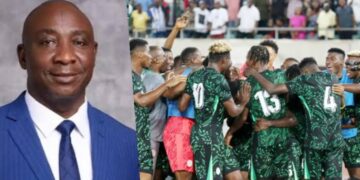South Korea’s impeached president Yoon has appeared in court to contest his potential arrest following corruption allegations.
South Korea’s impeached president appeared at a Seoul court on Saturday for a hearing to contest his potential formal arrest following last month’s imposition of martial law.
Yoon, who was detained on Wednesday during a large-scale law enforcement operation at his residence, faces possible rebellion charges related to his 3 December declaration of martial law. The declaration triggered South Korea’s most severe political crisis since its democratisation in the late 1980s.
The Corruption Investigation Office for High-Ranking Officials, leading a joint inquiry with police and military authorities, has requested the Seoul Western District Court to approve a warrant for Yoon’s formal arrest.
Yoon is expected to argue during the 2 p.m. hearing that his detention is unnecessary while the investigation continues. A decision from the judge is anticipated by late Saturday or early Sunday.
Yoon was transported from a detention centre in Uiwang, near Seoul, in a blue Justice Ministry van, escorted by police and presidential security officers. The motorcade entered the court’s basement parking area as hundreds of Yoon’s supporters rallied nearby, waving banners and chanting for his release amid a significant police presence.
Yoon refrained from speaking to reporters before attending the hearing. His lawyer, Yoon Kab-keun, revealed via text message that the president had accepted legal advice to appear personally before the judge.
Yoon plans to argue that his declaration of martial law was a legitimate exercise of presidential authority and that rebellion charges would not withstand scrutiny in a criminal or Constitutional Court, which is concurrently deciding whether to remove him from office or reinstate him.
Should Yoon be formally arrested, investigators will have up to 20 days to transfer the case to public prosecutors for indictment. If the court rejects the arrest request, Yoon will be released and allowed to return home.
Nine individuals, including Yoon’s defence minister, police chief, and senior military commanders, have already been arrested and charged for their involvement in enforcing martial law.
The crisis began when Yoon imposed military rule on 3 December to overcome legislative gridlock, deploying troops to the National Assembly and election offices. The martial law declaration was overturned within hours after lawmakers broke through a blockade and voted to lift the measure.
Days later, on 14 December, the opposition-controlled assembly voted to impeach Yoon.
If Yoon is indicted on rebellion and abuse of power charges, he could face up to six months in custody before trial. Under South Korean law, orchestrating a rebellion is punishable by life imprisonment or the death penalty.
Yoon’s legal team has argued against his detention, stating that he poses no flight risk or threat of evidence tampering. However, investigators contend that Yoon ignored multiple requests to appear for questioning and resisted a detention attempt on 3 January, with presidential security blocking the effort.
His defiance, they argue, raises concerns about whether he would comply with legal proceedings if not detained.





































comprar reseñas estafa
wf3hk6
f80hnf
1qrfh1
kf78ag
96ugc4
e2645x
I have been surfing on-line more than three hours today, but I by no means found any interesting article like yours. It’s pretty worth enough for me. In my opinion, if all webmasters and bloggers made excellent content as you did, the web will be a lot more helpful than ever before.
ts5kkn
I like what you guys are up also. Such clever work and reporting! Keep up the excellent works guys I¦ve incorporated you guys to my blogroll. I think it’ll improve the value of my site 🙂